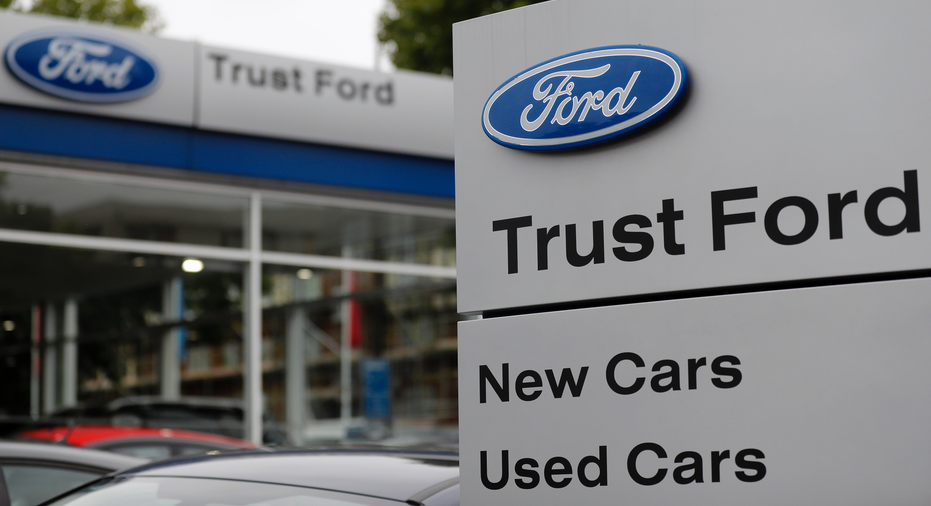Ford's net income jumps in 3Q on truck sales

DEARBORN, Mich. – Pickup trucks helped Ford Motor Co. to a strong finish in the third quarter despite lower global sales.
The Dearborn-based automaker's net income rose 63 percent to $1.6 billion in the July-September period. The earnings of 39 cents per share handily beat Wall Street's expectations. Analysts polled by FactSet forecast earnings of 33 cents per share.
Ford's revenue rose 1 percent to $36.45 billion. Automotive revenue of $33.6 billion also topped analysts' forecasts.
Ford also cited cost-cutting measures, including lower spending on engineering and marketing during the quarter.
"We do believe these are indications of us improving our fitness," CEO Jim Hackett said on a conference call with analysts and media.
With those results under its belt, Ford raised its full-year earnings estimate to $1.75 to $1.85 per share, up from $1.65 to $1.85. That compares to $1.76 per share in 2016.
Ford's overall sales fell 2 percent to 1.5 million cars and trucks. Sales were lower in China, North America and the Middle East; they rose in Europe and South America.
But the company earned more thanks to booming sales of high-margin trucks, which got an added boost after the season's hurricanes.
U.S. sales of F-Series pickups were up 14 percent during the quarter. Ford said buyers paid an average of $45,400 per truck, up $2,800 from the same period a year ago.
Chief Financial Officer Bob Shanks said more buyers are springing for luxury packages on their trucks to get extras like heated seats and 360-degree cameras. That pumped North American pretax profits to $1.7 billion, up 33 percent from a year ago.
Ford lost $86 million in Europe as dealers changed over to the new Fiesta subcompact. But Shanks said that will reverse to a profit in the fourth quarter. Ford also lost money in the Middle East and South America, but its pretax profit in Asia more than doubled to $289 million.
The third quarter was Ford's first full quarter with new Hackett at the helm. The former CEO of furniture maker Steelcase Inc. was leading Ford's new mobility efforts until May, when he took over the top job after CEO Mark Fields was ousted.
Earlier this month, Hackett told investors that Ford plans to cut $14 billion in costs by 2022. The company says better deals with suppliers, more shared parts and simpler designs will help it reduce material costs, while decreasing product development time will help with engineering costs.
Hackett said Ford doesn't simply want "hold your breath" cuts that will vary widely from quarter to quarter.
"I'm talking about things we can sustainably return to you each quarter," he said.
Hackett also said Ford plans to start testing autonomous vehicles in an unnamed city starting next year.
But Ford is struggling to be heard over splashier announcements from rivals like General Motors Co., which said last week that it will soon be testing self-driving Chevrolet Bolt electric cars in New York City. GM's share price hit an all-time high Tuesday, climbing above $46 per share after the company reported a $2.5 billion pretax profit — higher than Ford's $2 billion pretax result — despite selling its European division.
Ford's shares were up 1 percent to $12.14 in morning trading Thursday. They haven't gone higher than $13.27 in the last year.
"As we put more proof points out there — not only on the traditional side of the business but in terms of these new technologies and how we're going to leverage those and create value — I think the market will reward us," Shanks said.
Philippe Houchois, an analyst with Jefferies who has a "hold" rating on Ford's stock, said in a note to investors that the beat was a solid one, "suggesting Ford is getting a better handle on drifting costs." But he said Europe and South America remain drags.



















